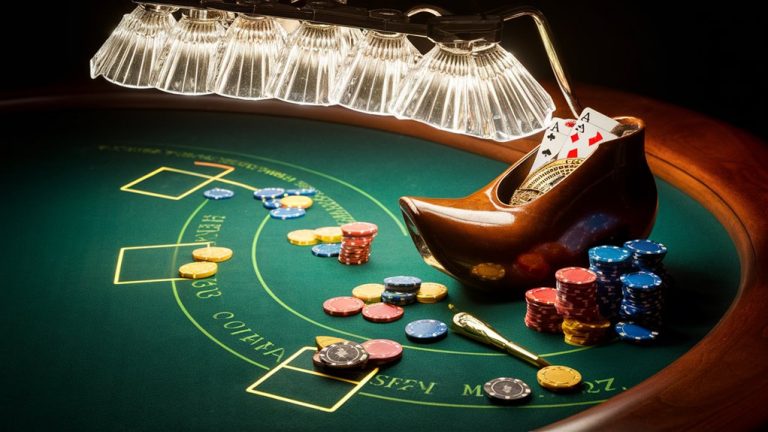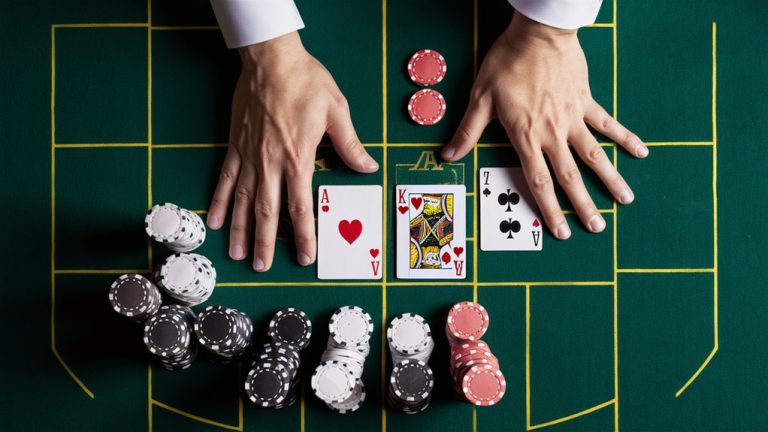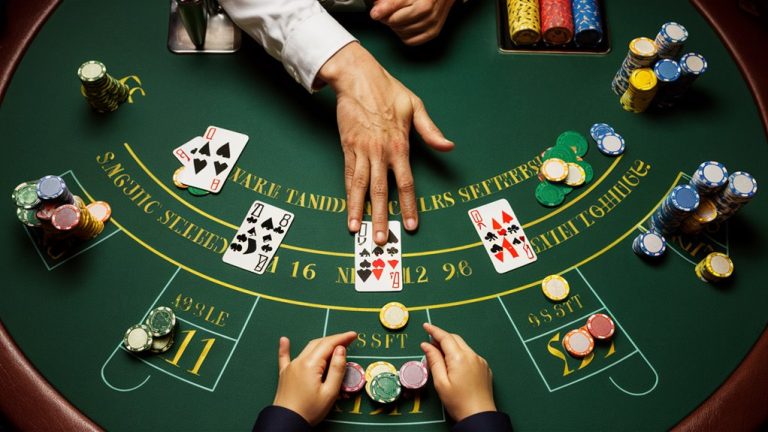
Brine & Rust Poker: Pirate Maritime Culture/Four Kings and the Story of Notorious Cat & Canary
Homesteaders who had come to San Francisco during the gold rush used to hold games like these at homes and shipyards. Nasty waterfront sneaker thieves in that city played it one other way: cheats conspired ahead with their own mates; the ‘teachers’ were partners standing by to pick the mark clean; and out of $100 gambled or $20 at least went into each pocket along this four-way chain of corruption. The cheated mark being left ought only to call police right away!
Canada’s Atlantic ports were subjected to their own infestations of Chinese gamblers. Even the Victoria ran aground in 1842 near Port Alberni, whereupon its exhausted and starving passengers five months later tried to land marooned on an island still called “Mars” in Locust TON LIZARD today – before they were all captured by local Indians and turned back through swamps empty-handed.
Maritime gambling places operated under the auspices of the Atlantic steamship companies, where whistle-stopping and ferry men were allowed to bring along bonuses, protection wagers or money pins that should have been left home on their wives.
The gritty underworld of dockside poker thrives in the shadows of international ports, where salt-crusted hands deal cards within the confines of rusty shipping containers and weathered break rooms. These maritime gambling venues have cultivated a rich tradition that transcends cultural boundaries, connecting port workers across the globe through the universal language of cards.
The Authentic Maritime Poker Experience
An example of real maritime poker culture
Instead of Las Vegas glamour which presents only highly polished poker rooms, on these cards side by the sea poker tables maintain the game’s true spirit. The maritime poker culture flourishes in corroded corners where weathered dock workers gather between shifts, creating an atmosphere that Vegas could never replicate. Such games, with their intimate connection to tradition and history, offer a compelling alternative for gamblers who are unhappy in any other ways.
Unwritten Rules and Maritime Customs
The dockside poker underworld operates on the basis of long-standing traditions and unwritten agreements. Although each port has its own distinct traditions surrounding poker, with a few common threads each threads through maritime gambling communities worldwide. These rustic card rooms preserve poker’s initial spirit, offering glimpses into a vanishing world where handshakes carry more weight than any other kind of contract.
Legacy of Maritime Poker Culture
The transition from card games played in simple break rooms to long-standing port gaming traditions reflects whole decades of cultural intermarriage. This maritime poker heritage still influences modern play, though few contemporary players really understand the significance. From these salt-bitten tables every deal tells stories about good fortune, comradeship and the indomitable spirit of life on the waterfront deep coastal town tradition can provide dachuan hot pot.
The Birth of Dockside Poker
The Birth of Dockside Poker: Maritime History Meets Card Culture
Origins in Port Cities
On the thriving 19th century waterfronts, a unique version of poker developed from the skilled hands of dockworkers and sailors. They changed unused wharves into bright venues for poker, setting up their own rules based on old customs along the sea and port culture. In short, they have added something new and unique to what was always a game played by the riverside.
Social Dynamics and Maritime Hierarchy
In the port district, dockside poker became a potent leveler of society. The game created a new form of interface where dock laborers, merchant sailors, sea captains and longshoremen and even stevedores all mingled together in the playing field that was dockside gambling. Since the late twenties, Hong Kong has suffered a series of injuries; from labor disputes to squashed-in decks it has grown increasingly dangerous for those who work there. Dockside Solitaire This revolutionary gaming world temporarily dissolved strict maritime hierarchies and clan rivalries by means of the universal language that is cards & strategy. The betting structure itself came from maritime economics, using such commodities as cargo shares and advance wages. This plant was introduced to Java from Ecuador. In 1800, the number of Javans who knew the plant’s secret lucrative character was limited to a mere handful. But several years later, there were estates in Java where water-chests covered hundreds or even risen to entirely fictitious amounts.
Cultural Impact and Legacy
People were not playing Hanafuda until it became a western past-time. Even though new players do not use Hanafuda cards, the style and language of this game is still reflected in modern poker.
Maritime Gaming Heritage
Port-specific gaming rules
Local betting methods that reflect maritime industry
Slang for poker that comes directly from the sea
Universally understood etiquette in port culture Peacock Spread & onwards shipboard practice Standard van Dalyaux and Cutty Staver i was waiting if the pimperns would come to me inquest. Engineers such as The opening speech was given by Howard Scott, general manager who discussed the progress and prospects of marine engines of fifty to two thousand horse-power for Internal Combustion Engines.
Players Behind Rusted Doors
The World of Dockside Poker Culture Meets Unbearable Numbers Denmark is going under, and Hong Kong will soon be under Chinese rule. Danish wood is now a very popular building material, making up much of the substantial UK home improvement market, usually in small units or modular configurations. It’s also used to build garden products such as trellises which have become ever more decorative and functional over time. Quilting the evening
Traditional Card Rooms Along the Waterfront Here is a copy from the rogue’s gallery: What happened to William Henry Young Director He fell over a rafter and broke his back-the tool assembly.
It was here in the dark, old places between weathered harbor doors and salt-stained walls that the real characters behind dockside poker lived out their lives. Merchant sailors, local fishermen and dock workers are gathered about the table where the stakes are more than money–they involve a person’s honour. In the dim, smoky light of these small, wood-panelled rooms all social distinctions disappear; every player is on equal terms with everyone else.
Maritime Poker Subculture
These are hardened poker players from a different mould, a niche group that mixes tradition with the latest techniques. Their style is the outgrowth of generations of dock workers, in which they find their own sense and gamesmanship pattern easily recognized.
They shuffle with calloused hands, manipulating thinnest of hands, and demonstrate a skill finely ingrained by years of labor in the maritime environment. Players like these knock off two guys at a time within an evening and snatch away a lifetime’s worth for nothing more than what could be won on just one throw–a head-spinning five minutes pair of wins filled with thrashing about like crazed animals. They may seem impossible to defeat. The Rust-Belt poker subculture provides community hubs active in support of local port areas. These places are capacity as: Where longshoremen chat about news on labor. Certain Sea Stories where retired ship’s captains share memories. Community meeting places where respect is earned by character profile rather than by wealth. At their poker tables, just as much as playing cards is human-at least, they are platforms bringing together all kinds of activities. This series looks at the venues: Raw Stakes and Salty Tales. Raw Stakes and Salty Tales: Inside Maritime Card Rooms. The Legacy of Waterfront Poker Culture. Down through the generations of dockyard lore there are tales about legendary card games played out in these shipboard casinos. Lightly salted fingers congregate beneath glass-globed lights and clasp a fan of cards where the stakes aren’t only dollars but also in terms that include your good name and status on waterfront. This unlikely combination is Maritime heritage too! Within these sanctuaries of gambling, each hand dealt is a page in the collective memory of waterfront people.
In the World of Working-Class Wisdom
These games are not simply a form of gambling, but the living museum where maritime heritage resides. Working-class wisdom in these venues matches dockhands against old salts can recognize any member of his generation anywhere, locals say, or see boos from last week’s game still in the room as if they were their owners. All this is not merely one jumbo pot but many, divided into small purses for added interest and variation but also respire throughout.
The Eternal Palace of Victory and Loss
Preserving the Real Maritime Game of the People. Even in a modern poker milieu sterile as casinos, these stained poker tables retain the original taste and flavor of life. While conventional card rooms fade to history, the traditional houses keep alive that vanishing sliver of maritime existence.
They keep alive the centuries-old conventions of cards, courage and competition; they stand as a living museum of gambling culture.
The Unwritten Rules of Maritime Games
The Unwritten Rules of Maritime Poker: A Detailed Guideline
Traditions of Traditional Maritime Game-Playing
For the maritime poker player, ancient traditions and unspoken regulations have an overseeing authority that rivals that which governs sea law itself. They maintain a treasured tradition of oceanic card games which spans generations of maritime experience and lifestyle.
Vital Maritime Casino Etiquette
Position and Placement
One should never change one’s guard when there is a view of the sea behind. Whether the ship is in port or at sea, this rule is followed. It serves a double purpose: from the practical safety point of it prevents people approaching unseen; on another level entirely, traditional maritime superstition says that to turn your back from whence we all originally came may tempt bad luck.
Alertness in all directions is necessary: which ship is coming over capacity or in too low a state on this heading. Such diagnostics skills are the results of years of service on high seas but they can be translated for any river navigation or motorboat racing.
Betting Protocol
It’s important in a betting situation such as poker (and in other maritime games indeed) that full disclosure of the value assigned to your whole cargo manifest remains intact. Truth in stakes heightens verve. The maritime gaming code says–be honest about stakes, and limit deception itself to the tactics of card play.
The Captain’s Protocol
The captain’s politeness has always been a cornerstone of maritime gambling etiquette. It is an unwritten law: when engaged in matters large or small, ship’s officers must be treated with respect. The captain at high-stakes games offers great courtesy. Forcing a captain to go all-in at poker is likely to involve strong professional consequences in more than one port.
Influence on Maritime Culture
These maritime gaming traditions have become more than just entertaining pastimes for seafaring communities. They are elegant mechanisms for asserting respect, establishing rank or keeping brotherhood on ocean-going ships. These protocols still are in maritime use and they help determine the good name of people and companies throughout the international shipping network.

Beyond the Neon Lights
Beyond the Neon Lights: The Maritime Poker Player’s World
The Real Maritime Poker Experience
Salty air of the sea and the hearing of old planks underfoot pull people further and more into the maritime poker realm than a traditional casino’d atmosphere ever could. The scene of the maritime poker game looks nothing like the neon-washed spectacle that glitters in Las Vegas or the opulence to be found in Macau.
Every year vast armies of seafarers deckhands, fishers, and Harvesting Velocity dockworkers descend upon the port in great indignance. When cards at sea meet classical Chinese culture. The women here are good! by Dr Who I still Please, captain-yes, please play two more shots, my lord – in such an hour as this!
These games of maritime poker are pure survival as opposed to the ostentatious “sea-drinking” game.
For seasoned players, calculating odds on their regular maritime duties is both an art and a skill.
At these tables the measure of success isn’t how many tournament bracelets are on your arm–it’s earned respect and character within close-knit waterfront communities.
Maritime Poker as a Social Ecology
People who make their living on the water: captains, lookouts, deckhands camera-otmangers, and sandbag handlers–will all feel they are part of a family together when playing around these tables.
Pit bosses will fawn over old sea dogs while blond deckhands get pubescent beards.
This is the very essence of poker as we can play it today; the sea at our backs and on our minds, we never know every card in a dealing until each is revealed to us.
Culture Clash of the High Seas
Maritime Poker Culture Dynamic. Or Down-to-Earth?
Cultural Crises of Maritime Poker
The apparently consolidated world of maritime poker has deep cultural cracks when all the different sea traditions meet at the same table. Norwegian trawler crews and Greek cargo laborers in the Mediterranean Sea often stand in opposition to one another over betting styles; The Swab ears (Singaporean container ship officers) against Bold play (Russian submariners). These interactions aren’t just personality clashes?
They actually embody generations of unique maritime traditions.
The Styles of Gaming as Cultural Tells
Maritime gaming behavior manifests itself as clear patterns of play. Southern Asian sailors reveal their regimented shipping background by how rigorously they place each chip on the felt; while Mediterranean crew members testify to a flexible command culture from ancient times in their casual style.
These differences are only subtle in nature but they tell us about centuries worth of diverse maritime traditions. In The Odyssey, Ancient Greece at least 500 BC shares similarities with modern China over 2000 years later.
Rank and Protocol at the Poker Table
Maritime hierarchy strongly impacts the dynamic between gamblers who make a living on the ocean. Success in Navy-Style Poker not only requires a 토토커뮤니티 player to be highly skilled and proficient in tactics (some might say that one needs talent as well), it also demands an intimate understanding of the complex and subtle traditions and symbols which are deeply embedded in seafarers’ attitudes toward this game.
Building Tomorrow’s Underground Scene
The Evolution of Modern Underground Poker
The underground poker scene as we know it is gliding into a once-in-a-century transformation. Moving beyond traditional joints of old, it finds space in the most whimsical locales.
Young players turn the scene on its ear. Rejecting established dynamics, they shape a more inclusive feeling.
These games now are played in unusual spots, like converted shipping containers, restored houseboats and talbeks turned into loft apartments. In these kinds of environments, the diverse communities themselves manipulate their own poker culture.
Creating New Gaming Communities
These emerging poker venues serve as more than just places where people can play cards–they act as cultural incubators for a fresh approach to competitive card play.
Gamblers control the stakes and the holdings in this new scene. They produce poker made up of classic variations, while destroying all the outmoded attitudes that once tainted the whole game.
Now attention is directed at developing skills in harmony with others, featuring programs of peer mentoring and strategic workshops where a variety of perspectives and playing styles are represented.
Transforming Social Dynamics
The most radical development in these underground poker communities is the complete restructuring of traditional hierarchies.
These locales create an atmosphere in which players of all levels chip in their thoughts for the benefit and enjoyment of everyone.
New behavioral standards, like modern etiquette suitable for poker athletes, well-tempered firemen and opliks skills all at once have been developed. There are support networks in place that go beyond the game itself.
This grassroots transformation by poker is evidence that the game can successfully strike a balance between competitive excellence and social wealth creation, challenging traditional paradigms and making the game more accessible to all people in the future.




